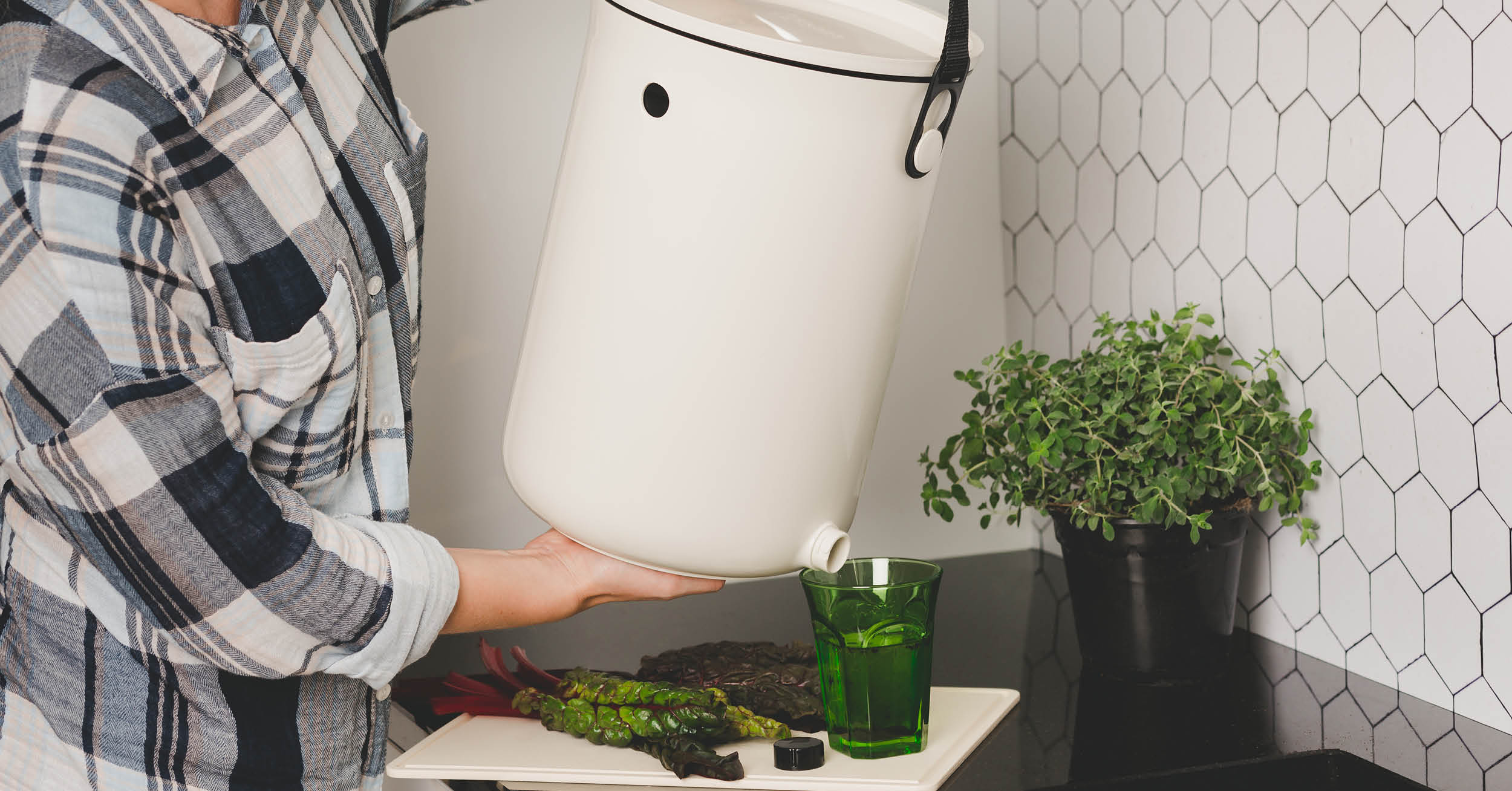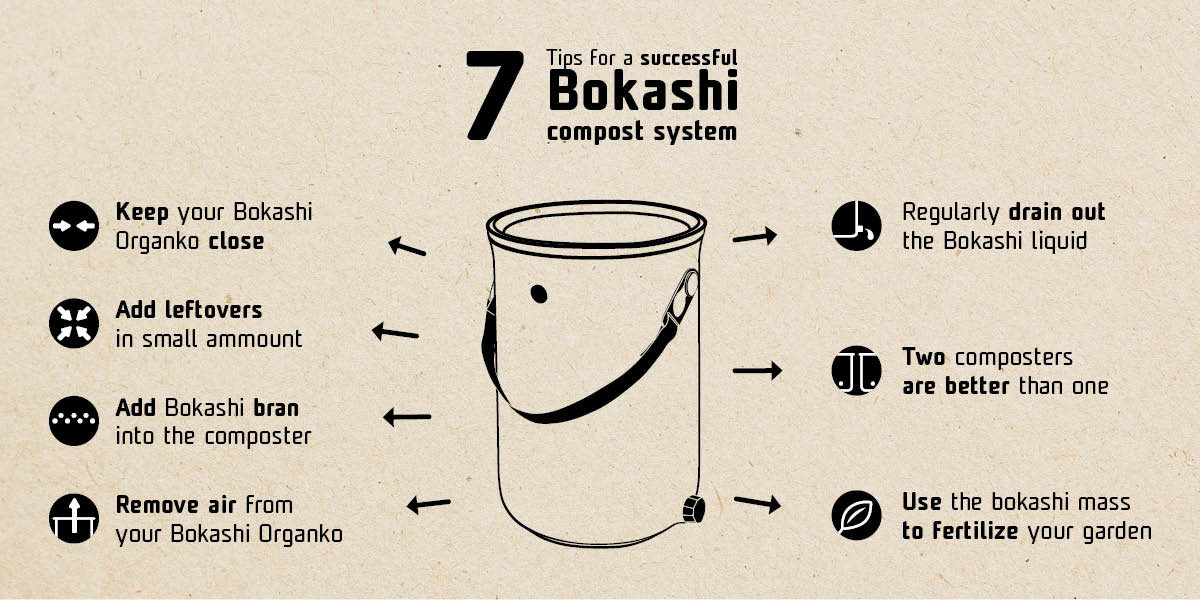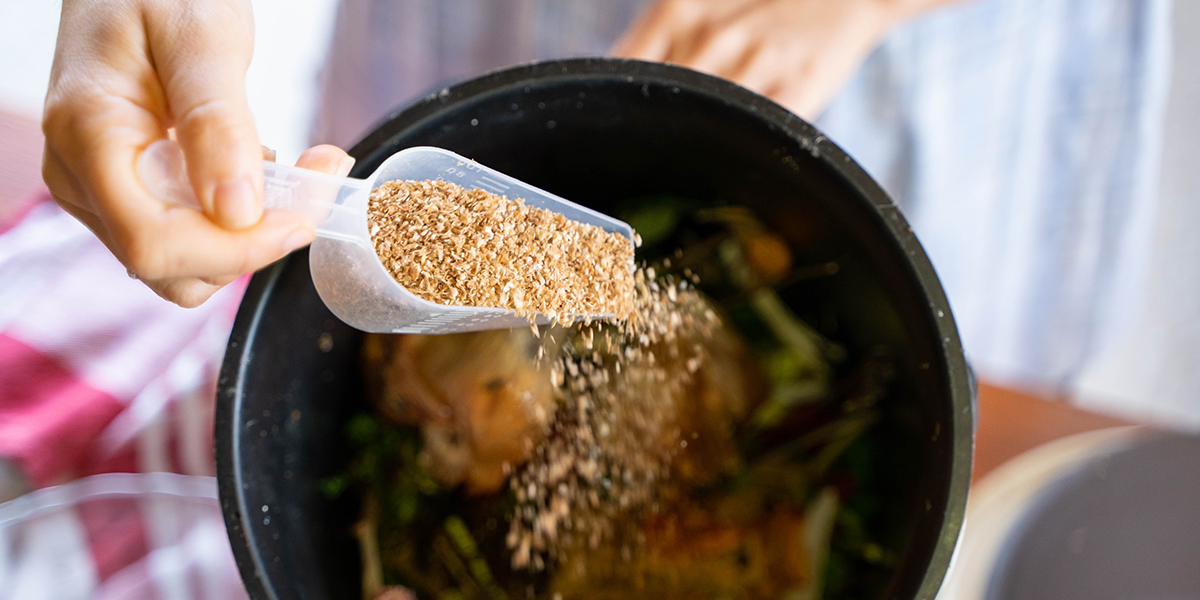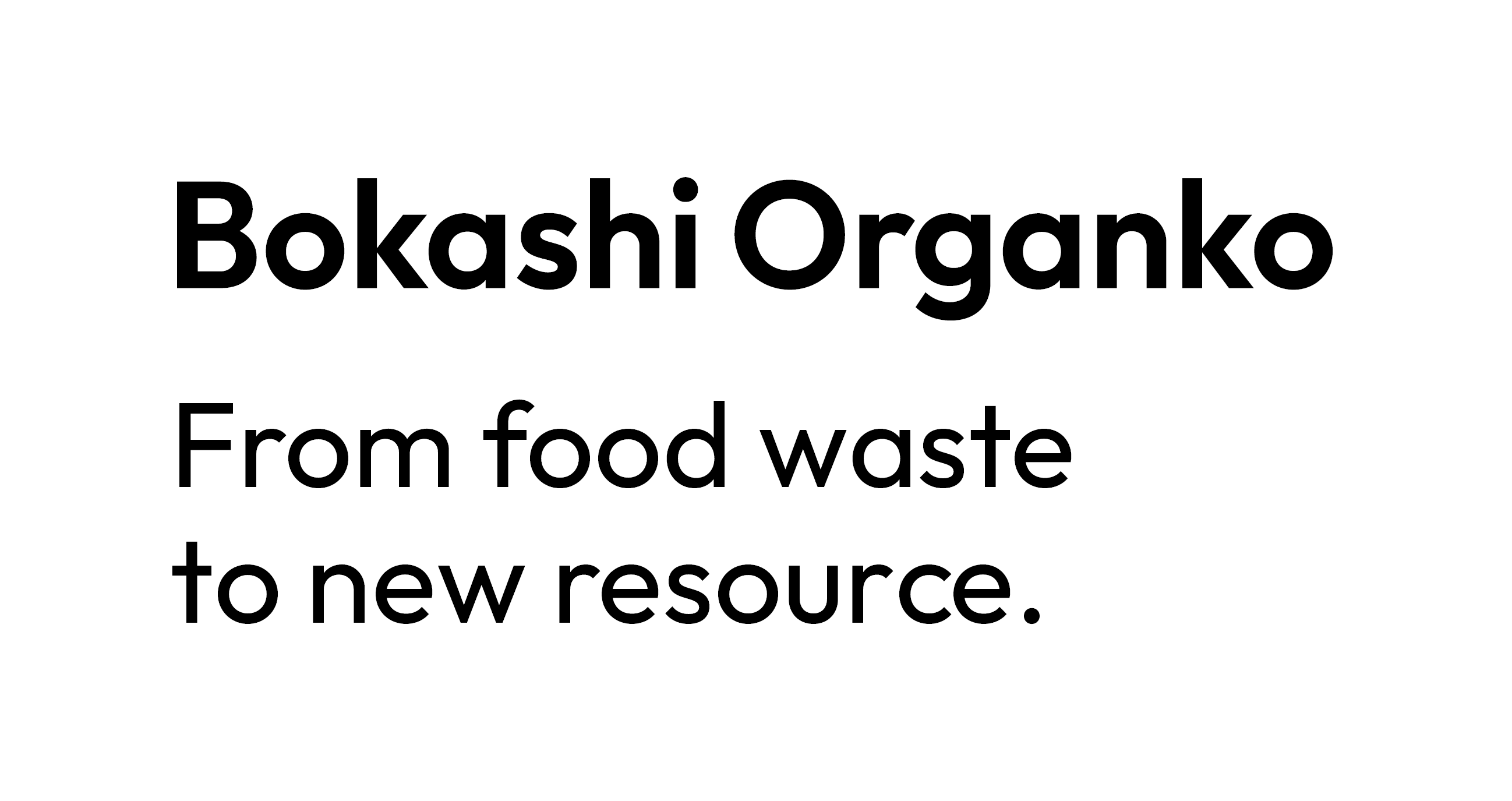Promoting a zero-waste lifestyle has always been close to our company's identity. We are on an ambitious mission of helping change people's habits worldwide and make our planet a better place for everyone. We strive to introduce new and inventive ways of doing everyday chores, such as managing bio-waste with a bokashi compost system.
Still don't know what that is? No problem, continue reading to learn all about it, how to implement it into your household and how to make the most of it.
What is bokashi compost system?
Bokashi compost system, whose name comes from Japanese, is a process of converting bio-waste (most commonly food leftovers) into a fermentation mass that can be added to the garden soil where it significantly improves its texture.
What makes the bokashi compost system different from traditional composting methods is the use of special microorganisms, which cause the bio-mass to ferment, not decompose. Once this process is over, after about two weeks, the fermentation mass can be fed directly to the garden soil, where it slowly dissolves in the next months or two. As a result, virtually all input carbon, energy and nutrients enter the soil, having been neither emitted in greenhouse gases and heat nor leached out.

Try bokashi composting by yourself
The bokashi compost system is much simpler than you might imagine. In fact, you can try it all by yourself at home. All you need to get is one of Skaza's convenient Bokashi Organko composters. As you will find out, it has never been easier to manage your bio-waste and produce your own bokashi soil.
To make it even easier, we have prepared a list of seven tips for you to use.

Keep you Bokashi Organko close
After designing the first composter bin more suitable for your garden, we decided to create another, a smaller version for kitchen use. Therefore, you can put your Bokashi Organko 2 right under your sink or on a counter to keep it conveniently close. Don't worry; no bad smells are coming out of it as both bins come with reliable vacuum components.
Add leftovers in small amounts
In order to properly ferment, bio-waste needs to be inserted in layers. It is much easier to create even layers if the leftovers are smaller. Furthermore, our research has shown that smaller pieces of food waste help the fermentation mass preserve more nutritious substances.
Add enough Bokashi bran into the composter bin
When filling up your composter bin, don't forget to sprinkle enough Bokashi bran (at least 20 ml are recommended) between each layer to make the process run smoother. Not just that, lack of Bokashi bran can make the bio-waste decoy instead of ferment, which can cause a bad smell in your kitchen.

Remove air from your Bokashi Organko
One of the most important things you need to remember about the bokashi compost system is that the process requires a minimum amount or no oxygen present. Luckily, we have thought about the solution and installed a presser into Bokashi Organko 2 to squeeze out all the unnecessary air, while Bokashi Organko 1 comes with an air-tight lid.
Regularly drain out the Bokashi liquid
Another thing you need to bear in mind is draining out the fermentation liquid regularly, every two to three days. It is full of organic nutrients, and diluted with water can be used to fertilize your plants. If you forget to take it out, the microorganisms will consume the nutrients quickly, resulting in an unpleasant smell.
Two composters are better than one
Once the composter is full, you need to wait 14 days for the fermentation process to run its course before you can empty bokashi mass into your garden soil. In the meantime, you can start loading up a new bin, which is why getting another one seems like a good option. In this case you might consider our very special Bokashi Organko 2 Ocean, made from hand-picked and recycled fishing nets.
Use the bokashi mass to fertilize your garden
The main reason why implementing the bokashi compost system into your lifestyle is, of course, producing your own nutritious soil. Once the fermentation process is over, you can use the bokashi mass to fertilize your garden or plants on your balcony.


